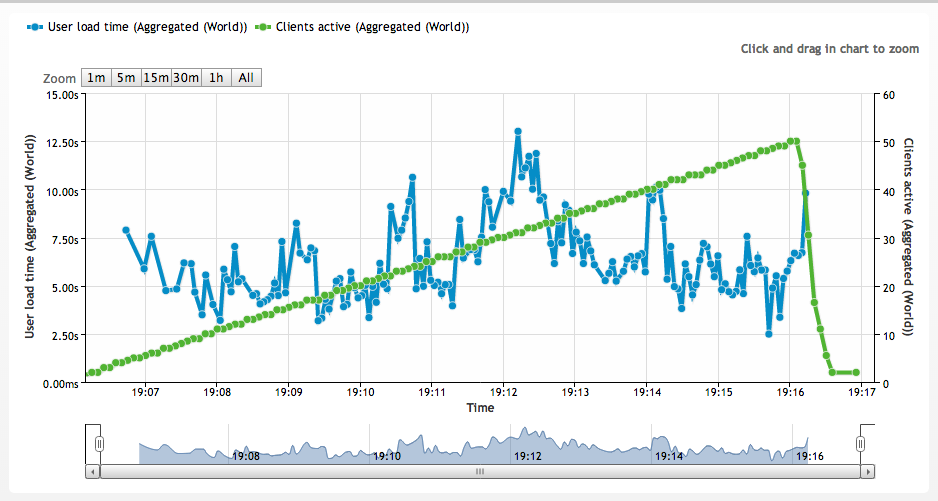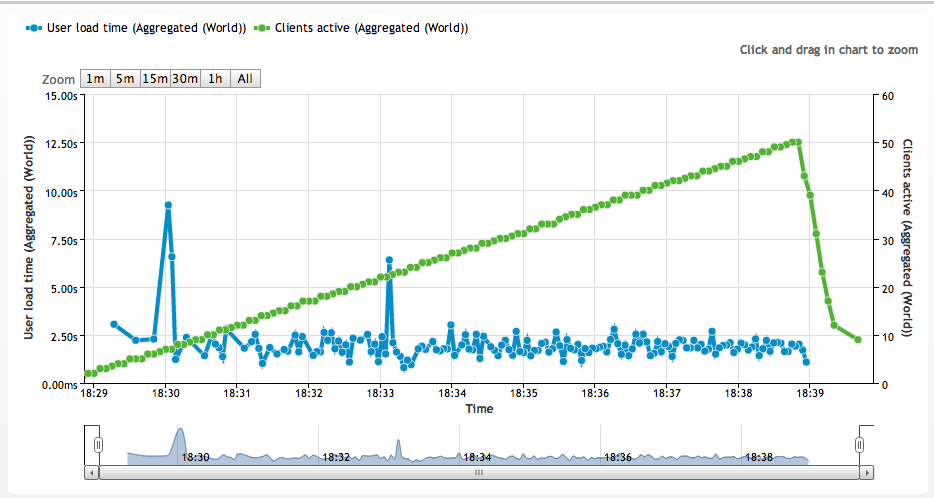Wordpress Performance Comparison Shared Hosting vs Digital Ocean
Compare WordPress performance factors like hosting, plugins, and caching. Learn how to optimize your site for speed and test its performance using essential tools.

So one of my goals for 2014 was to move my website 2WheelTuesday from InMotion Hosting to Digital Ocean. Well check. It is off my To Do list.
I took the migration one step further. I not only migrated to Digital Ocean but I also converted from Apache webserver to NGINX. I can honestly say I am over the moon with the performance improvement and the sheer control I have over my server now.
Downside of Shared Hosting
The troubling point with Shared Hosting is well it is shared. I had quite some performance issues while using InMotion Hosting. I originally started with a normal hosting account until my website grew to the point it needed more performance. After talking a long time with a Sales Consultant I decided to buy a VPS (Virtual Private Server) account. Since I work every day with Virtual Machines/Server I thought this was a no brainer. Boy was I wrong. Performance was all over the place. Even though it was a VPS server I had limited permissions on the server itself to tune or install software.After sometime I didn't have time to maintain the website so I downgraded the hosting to a Reseller Account since I wanted to keep a few sites parked here.. Since my site was down from 4,000 hits a day to roughly 400 I thought this was sufficient step to park my website while keeping my Google rankings.
Almost every time I logged into my site it was down or the load times were off the scale. I couldn't believe how loading the site degraded so badly. I called the support desk and they informed me that my site was using to much resources. When I asked what specifically was wrong with performance they couldn't answer.
It was time to take action. Shared Hosting is great for small websites with little traffic. Once your site grows and you have a lot of content and several hundred visitors it is time to consider an upgrade. I checked the performance on my VPS and it was insanely slow.
Wordpress Performance Comparison between Shared Hosting and Digital Ocean
This is not a 1 to 1 comparison just at the hosting level. But the comparison covers both a migration to Digital Ocean and switching to the webserver NGINX. If and when you plan a migration this a the perfect opportunity to tweak performance and do some house keeping.So I installed a new droplet which is what Digital Ocean calls an instance. I chose an image containing Wordpress with Ubuntu. I then migrated this image from the Apache Server to the NGINX. Digital Ocean actually has a great instructions for Apache to NGINX migrations.
OK OK enough of the build up show us the facts. Right?
Before with brianchristner.io running on InMotion Hosting, Wordpress, on a Reseller account with very few plugins. This site is a very bog standard installation with very few posts and images.
I ran the tests using Load Impact in order to get unbiased 3rd party results. Load Impact is a stand alone service which measures website performance from different locations. I use this tool quite frequently for other projects as well.

Digital Ocean running 2WheelTuesday.com with NGINX with over 2000 Articles and 3600 pictures.

Conclusion for less money than the Reseller package you get a shit ton better performance. As you see in the charts the Shared Hosting is sitting around 6.5 seconds load time versus the 2 seconds load time from Digital Ocean. It's also worth noting how much more consistent Digital Oceans graph is in comparison to InMotion.
Digital Ocean $10 per month -
- 1 GB RAM
- 1 CPU Core
- 30GB SSD Disk
- 2 TB Bandwidth
InMotion Reseller R-1000 $13.99 per month
- Unknown CPU/Memory size and support would not confirm sizes to me
- 60GB SAS 15,000 RPM Disks on RAID 5
- 600 GB Bandwidth
Converting Wordpress from Apache to NGINX
Let's talk about the Apache vs NGINX configuration. I have migrated to NGINX from Apache. I do admit it required a lot of configuration in order to get the NGINX running exactly how I wanted it. Once it is up and running I am amazed at the performance improvement and the ability to handle multiple connections.Apache -
This is a great web server. I have used it for a very long time without complaints. It works right out of the box and it is easy to configure and use. The disadvantage is that Apache is a bit of a memory hog and tends to use a lot of memory when your website starts receiving a lot of requests.
NGINX -
The new kid on the block and one the fastest growing webserver on the market. Also, to mention Worpress.org is now using NGINX as their webserver to put things in perspective. The pros are huge with NGINX handling multiple connections with ease all while maintainaing a very small ressource footprint. The con is it requires a lot of configuration to get all your plugins running and tuned the way you want. But once running you will be smiling ear to ear with the performance gains.
FAQ Section: WordPress Performance Comparison
What factors impact WordPress performance the most?
The primary factors affecting WordPress performance include web hosting, theme quality, plugin use, database size, and caching. Optimizing these elements can significantly improve load times and overall performance.
How does managed WordPress hosting improve site performance?
Managed WordPress hosting offers optimized server environments tailored specifically for WordPress, including automatic updates, built-in caching, and better scalability. These features help reduce server response times and improve site speed compared to shared hosting.
Does using too many plugins slow down WordPress?
Yes, using too many plugins or poorly coded ones can slow down your WordPress site. Plugins increase the amount of code your site needs to load, potentially leading to slower page speeds. It’s best to use only essential and well-coded plugins.
How does caching improve WordPress performance?
Caching saves a static version of your site, reducing the need for the server to generate pages dynamically every time a user visits. This speeds up load times significantly, especially for repeat visitors. Plugins like WP Rocket or server-level caching can help.
What tools can I use to test WordPress performance?
You can use tools like Google PageSpeed Insights, GTmetrix, and Pingdom to test WordPress performance. These tools provide detailed reports on site speed and suggest improvements, helping you identify areas that need optimization.
Follow me
If you liked this article be sure to Follow Me on Twitter to stay updated!



